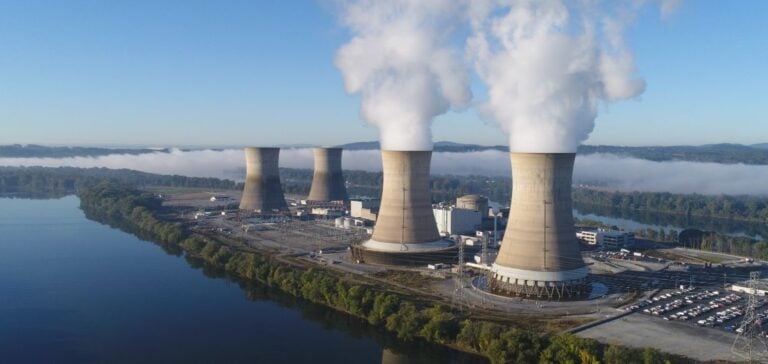The Three Mile Island nuclear plant, located in Pennsylvania, is poised for an unexpected revival. Closed in 2019 for economic reasons, Unit 1 is scheduled to restart in 2028 thanks to a 20-year partnership with tech giant Microsoft. The company will utilize all the electricity generated to power its data centers, further solidifying the technology sector’s interest in low-carbon energy sources.
The restart of this unit is accompanied by promising economic projections. A study by the construction union federation of Pennsylvania forecasts the creation of 3,400 direct and indirect jobs, along with an estimated $3 billion in tax revenues for neighboring counties. “This will benefit many communities and even the entire country,” said Robert Bair, the federation’s president.
A History Marked by Controversy
However, not everyone is enthusiastic. Three Mile Island remains associated with the most severe nuclear accident in U.S. history, which occurred in 1979 at Unit 2, now permanently closed. The incident, caused by a combination of human error and technical malfunctions, released radioactive materials into the atmosphere. While authorities minimized its impact, residents and activists continue to accuse officials of downplaying the severity of the emissions.
Studies have revealed abnormally high rates of cancers and leukemia in the years following the incident, though no direct causal link has been definitively established. “Until the authorities acknowledge the extent of the damage, I cannot approve this reopening,” said Maria Frisby, a Middletown resident who lost several classmates to illnesses she attributes to the accident.
A Future in Energy Hinges on Conditions
The relaunch also raises environmental and technical concerns. Eric Epstein, head of the EFMR association specializing in radiation monitoring at Three Mile Island, highlights unresolved issues, including water supply and radioactive waste storage. Constellation, the plant operator, has assured that spent fuel will remain stored onsite as before and is awaiting the necessary permit to secure its water needs.
On the other hand, proponents of the project emphasize strengthened safety measures in the nuclear sector. “Unit 1 was the most efficient reactor in the country before its closure,” noted Robert Bair, underscoring the stringent regulations surrounding such installations.
An Economic and Strategic Choice
Microsoft’s involvement in the project reflects a paradigm shift in the energy sector. With the rise of artificial intelligence and cloud technologies, tech giants are seeking reliable and decarbonized electricity sources, even at a higher energy cost. This trend positions nuclear power as a viable alternative to meet growing energy demands while aligning with environmental commitments.
Nevertheless, local community concerns remain palpable. “The energy produced won’t directly benefit local residents,” lamented Matthew Canzoneri, president of the Goldsboro municipal council, located near the site. This dilemma illustrates a broader debate on nuclear power’s role in the energy transition and its societal impact.






















